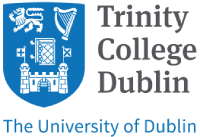Prof N O'Connor
No more applications being accepted
Funded PhD Project (Students Worldwide)
About the Project
This project will quantify experimentally the impacts of multiple stressors (e.g. ocean warming, nutrient enrichment and acidification) on marine benthic resources. It will address research questions that explicitly identify and characterise the independent and cumulative effects of multiple stressors on key ecological processes. The project will focus on processes that underpin the development of benthic species cultivation for biofuel, food and potential biomaterial. For example, seaweed cultivation methods, bivalve production and associated predation rates and their indirect effects on phytoplankton etc.
Project Objectives
The impact of climate change on marine ecosystem functioning and subsequent aquaculture production is largely unknown and theoretical predictions of potential effects vary tremendously. By manipulating environmental factors, such as temperature, nutrient concentration and acidity, and quantifying processes, such as primary production and predator-prey interactions, under these separate and cumulative stressors, we will identify the key factors limiting the production of bivalves and seaweed under current and predicted future scenarios.
Methodology Proposed
This project will use novel experimental methods to quantify and characterise the cumulative effects of multiple stressors on the functioning of marine ecosystems. For example, we will identify the factors that affect mussel survival and growth (and production, condition, functioning) and their predation (survival) rates under changing environmental conditions. The student will have access to new infrastructure at Trinity College Dublin including a mesocosm-based platform - Quantifying the Impacts of Multiple Stressors (QIMS), that incorporates highly replicated independently controlled aquaria where environmental conditions are manipulated to represent current and predicted future ocean conditions and a suite of suite of state-of-the-art environmental monitoring equipment and tools for deployment in the field.
Expected Outcomes
The student will produce an excellent PhD thesis within the given time-frame.
All results will be published in leading international peer-reviewed journals.
All findings will be disseminated within the international scientific community and also to relevant marine resource management and stakeholder groups.
A highly skilled new scientist will be trained with expertise in multiple stressor impacts, in addition to advanced analytical, empirical and scientific communication skills.
Closing Date for Applications
Applications will close 1 June 2018. As we expect great interest in this funded PhD studentship early application is advised.
Application Requirements
Candidates must have a minimum 2.1 grade in an honours degree (GPA of 3.2/4) to be considered for entry to Trinity College Dublin. Individual PI's may have additional specific entry requirements. General information on entry to Trinity College Dublin is available at: www.tcd.ie/courses/postgraduate/faculty/
How to Apply
Interested candidates should contact the PI for this project directly, Prof. Nessa O'Connor E: [Email Address Removed] in the first instance. Additional information on how to apply to our PhD programmes is available at: www.tcd.ie/courses/postgraduate/research/az.php
Funding Notes
This Trinity College Dublin, Provost’s PhD Project Award is open to EU and Non-EU candidates and includes full tuition fees and an annual stipend of €16,000 for four years, beginning in September 2018. These prestigious doctoral awards are generously funded through alumni donations and Trinity’s Commercial Revenue Unit.

 Continue with Facebook
Continue with Facebook

